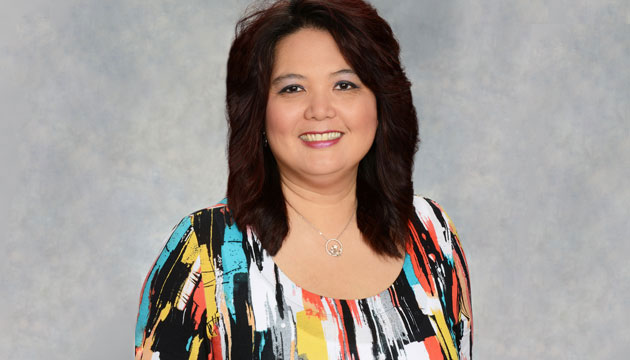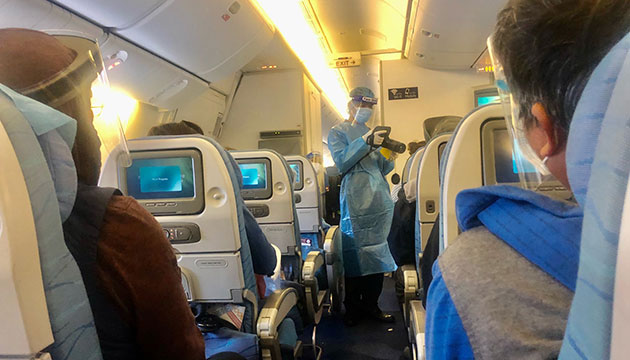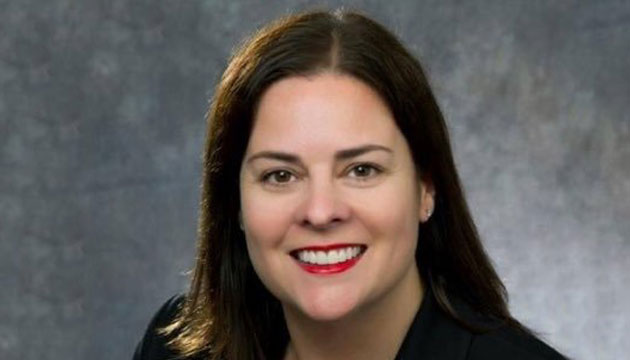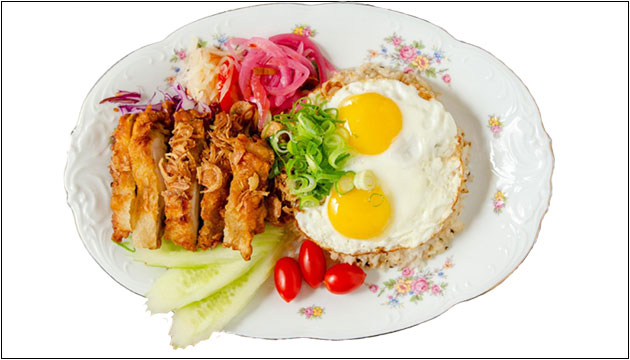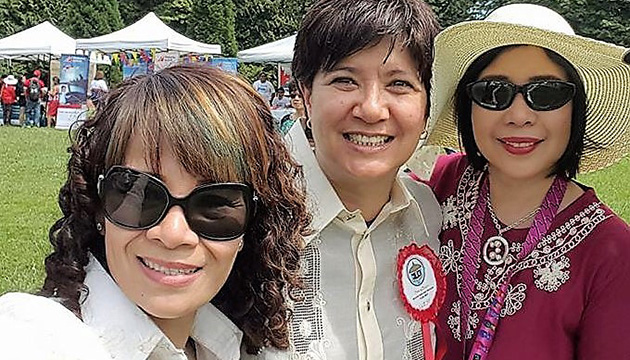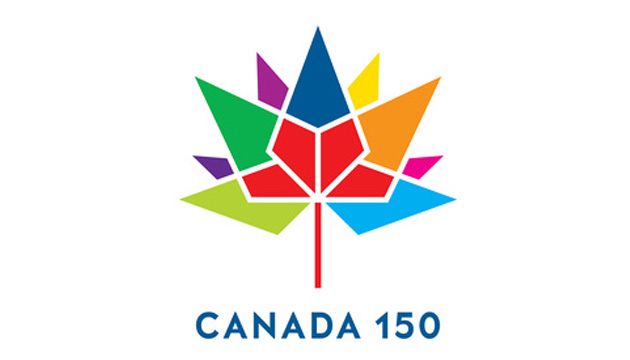As Filipino Heritage Month 2021 comes to a close, the Editorial Board of CanadianFilipino.Net
is pleased to present its first list of notable Filipinos who have excelled in various fields while individually helping Filipinos and Canadians alike and contributing to Canada’s multicultural image in the world.
This will be an annual feature of CFNet to highlight outstanding Filipinos, straddling East and West cultures, and their roles in Canada’s development and progress as a multicultural country.
The CFNet selection is based on merit because being notable is not a matter of opinion but hinges on merit that makes it empirically obvious when one is outstanding.
The Editorial Board uses the following CFNet criteria for selecting its Annual List of Outstanding Filipinos in Canada:
(1) They should have achieved their potential (in education and/or work experience) and
(2) have helped or influenced Filipinos and Canadians alike with lasting effect, not as “one-day wonders” ( ”one-day wonder” is something or someone that is interesting, exciting, or successful for only a very short time, and does not have any lasting value)
(3) while contributing to the multicultural nature of Canadian society and/or
(4) whose achievements helped to promote Canada’s progress and prosperity at home and stature in the world.
The CFNet’s 2021 list includes: Prof.Leonora Angeles, Steve Coroza, Leonardo B. Cunanan, Phil de Luna, Eleanor Del.Rio-Laquian, Dr. Eileen de Villa, Ma-Anne Dionisio, Michelle Elliot, Mable Elmore, Delia Laglagaron, Prof. Aprodicio Laquian, Dr. Rey Pagtakhan and Fely Villasin. They represent diverse fields such as arts, business, education, law, media, medicine, politics, science, and urbanization.
Hopefully, this group will prove short the biased list of “Notable Canadians of Asian Descent” released by the Ministry of Diversity and Inclusion under the Hon. Bardish Chagger. The list included only two Filipinos out of about a hundred names – mostly Chinese and South Asians. The two Filipinos were speed skater and gold medalist Gilmore Junio and a dead MLA from Manitoba, Conrad Santos. And these two deserve to be there!
But it is disturbing that although Filipinos are now the third largest immigrant group in Canada and the fastest growing, only two were recognized by the Canadian government as notable out of almost one million Filipinos in Canada today. Have Filipinos become invisible in Canada? This unfair treatment of Filipinos by the Ministry of Diversity and Inclusion needs correcting because the Ministry, under the office of PM Trudeau, seemed to have failed in due diligence when preparing the list. How can a fast growing Filipino population of almost one million slip under the radar and stay there for over 70 years?
CFNet invites readers to send their list of outstanding Filipinos (with photos and bios – not to exceed 500 words) for next year’s CFNet list. It’s time for Filipinos to show that many of them are as good, if not better, than the next Asian or Canadian and should be duly recognized as such. This is no time to be modest. Stand tall, blow your horn, make your presence felt and be counted.
Contact us at
CFNet’s Outstanding Canadian Filipinos for 2021
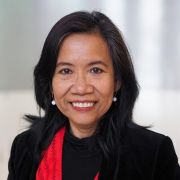 Professor Leonora C. Angeles of UBC, Filipino community leader and organizer, was among pioneering professors who developed women’s, gender and feminist studies in the Philippines in the late 1980s, first at the St Scholastica’s College Institute of Women’s Studies, then at De La Salle and University of the Philippines (Diliman) Department of Political Science where she developed the first women and gender studies courses on Women and Politics in 1986 and 1987. She finished her BA (1984) and MA (1989) in Political Science at the University of the Philippines, Diploma in Women and Development Policies (1986) at the University of Nottingham, and PhD in Political Studies (1995) at Queen’s University.
Professor Leonora C. Angeles of UBC, Filipino community leader and organizer, was among pioneering professors who developed women’s, gender and feminist studies in the Philippines in the late 1980s, first at the St Scholastica’s College Institute of Women’s Studies, then at De La Salle and University of the Philippines (Diliman) Department of Political Science where she developed the first women and gender studies courses on Women and Politics in 1986 and 1987. She finished her BA (1984) and MA (1989) in Political Science at the University of the Philippines, Diploma in Women and Development Policies (1986) at the University of Nottingham, and PhD in Political Studies (1995) at Queen’s University.
Since resettling in Canada in 1993, she has taught at four Canadian Universities (Queen’s University, University of Regina, University of Saskatchewan and the University of British Columbia. She is currently an Associate Professor at UBC’s School of Community and Regional Planning (SCARP) and the Institute for Gender, Race, Sexuality and Social Justice (GRSJ), teaching courses on gender, global issues, social justice and development, qualitative research methods, field-based participatory planning and action research. She helped developed the UBC Asian-Canadian and Asian Migration (ACAM) Minor Program, and mentored undergraduate and graduate students in the UBC Philippine Studies Series and Philippine International Planning Studio course at SCARP. She is President of the National Pilipino Canadian Cultural Society (NPC3) since 2020 and the Canadian Council on Southeast Asian Studies (CCSEAS) since 2019.
She is a prolific writer, lecturer, and researcher. She has more than 95 peer-reviewed and non-peer reviewed research publications in the form of journal articles, edited books, journal special issues, book chapters, and research monographs. Her path-breaking MA Thesis on “Getting the Right Mix of Feminism and Nationalism: The Discourse on the Woman Question and Politics of the Women’s Movement” is a “must read” for subsequent researchers in the history and political sociology of women’s movements in the Philippines. Since 1987, she has been Principal Investigator of Social Science and Humanities Research Council of Canada (SSHRC) research projects, as well as other funding agencies, beginning with her Ford Foundation grant under the auspices of the UP Centre for Integrative and Development Studies (CIDS). She has consulted for the World Bank, UN Habitat, Canadian Museum for Human Rights, and the Canadian International Development Agency. She has served as expert witness for human rights and civil cases involving Filipinos in Canadian courts. She writes regular columns for online and print newspapers and is a sought-after commentator for the Canadian Broadcasting Corporation (CBC) Radio and TV, The Filipino Channel, CityNews Vancouver, and OMNI TV. She has received numerous awards: Gawad Dangal ng Plaridel (Pride of Plaridel Award), Category: Expatriate Filipinos (2009); Bright Lights Award, Pacific Immigrant Resources Society( 2010); Filipino Who’s Who in British Columbia, Dahong Pilipino Award (2011); Most Outstanding Alumna (Education), St. JamesAcademy, PlaridelBulacan (2012); Queen Elizabeth Diamond Jubilee Award (2013); University of British Columbia Alma Mater Society( AMS) Just Desserts Awards for Student Service (2016); and Civic Merit Award, City of Vancouver (2018).
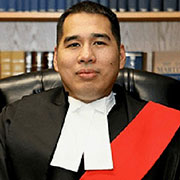 Steve Coroza is the first and only Canadian Filipino to be appointed to the Court of Appeals for Ontario, and before this, to the Superior Court of Justice in Ontario and the Ontario Court of Justice. The federal Department of Justice announced his appointment as Justice of the Court of Appeals for Ontario in April 2020. It was the third historic appointment for Coroza, son of Filipino immigrants. David Lametti, Minister of Justice and Attorney General of Canada, said in his announcement that Coroza was appointed to the Ontario Court of Justice (St. Catharines) in 2009 and to the Superior Court of Justice (Brampton) in 2013.
Steve Coroza is the first and only Canadian Filipino to be appointed to the Court of Appeals for Ontario, and before this, to the Superior Court of Justice in Ontario and the Ontario Court of Justice. The federal Department of Justice announced his appointment as Justice of the Court of Appeals for Ontario in April 2020. It was the third historic appointment for Coroza, son of Filipino immigrants. David Lametti, Minister of Justice and Attorney General of Canada, said in his announcement that Coroza was appointed to the Ontario Court of Justice (St. Catharines) in 2009 and to the Superior Court of Justice (Brampton) in 2013.
Coroza was born in Belleville, Ontario, and raised in Toronto. His parents are Lota Banate Coroza of Roxas City in Capiz and Romy Mabilangan Coroza of Santo Tomas town in Batangas. He received his bachelor of laws degree from the University of Windsor and was admitted to the Bar of Ontario in 1997. He also received a master of laws degree from Osgoode Hall Law School in 2003.
He was a staff duty counsel for Ontario Legal Aid in Toronto from 1997 to 1998. From 1998 to 2009, he was senior counsel with the Department of Justice and the Public Prosecution Service of Canada with criminal law his main area of practice. He was a member of the Federation of Asian Canadian Lawyers. He is a past adjunct instructor of the Trial Advocacy Course at Osgoode Hall Law School and a guest instructor with the University of Notre Dame Law School. Coroza frequently participates as a panelist in continuing education programs for lawyers and judges. He is also a co-author of a publication titled Sentencing Drug Offenders.
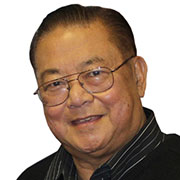 Leonardo B. Cunanan – As the yellow pages are to telephone users so is Dahong Pilipino to Filipino businesses and consumers in British Columbia. Dahong Pilipino is the only is the only Canadian Filipino Community and Business Directory in Canada. It was started in 1991 by Leonardo Bril Cunanan as a business directory serving as a reliable guide for the local Filipino community and other residents of B.C. It provides names, addresses and phone numbers of Filipino businesses, professionals and community leaders and organizations. It also features successful Filipinos in their respective professions and businesses to serve as role models and inspiration to younger Filipinos. Its goals are to project a positive image of Canadian Filipinos and to highlight their contributions to Canadian society in general.
Leonardo B. Cunanan – As the yellow pages are to telephone users so is Dahong Pilipino to Filipino businesses and consumers in British Columbia. Dahong Pilipino is the only is the only Canadian Filipino Community and Business Directory in Canada. It was started in 1991 by Leonardo Bril Cunanan as a business directory serving as a reliable guide for the local Filipino community and other residents of B.C. It provides names, addresses and phone numbers of Filipino businesses, professionals and community leaders and organizations. It also features successful Filipinos in their respective professions and businesses to serve as role models and inspiration to younger Filipinos. Its goals are to project a positive image of Canadian Filipinos and to highlight their contributions to Canadian society in general.
In keeping with the technological advances of the time, he transformed it in 2011 from a traditional print publication to a modern digital directory with an online version at www.dahongpilipino.ca. It is the only publication of its kind in Canada that has published an annual edition continuously for over 25 years. Its website gets over 4,000 hits per month.
Now on its 30th year of publication, Dahong Pilipino continues to improve its contents and helpful tools for Canadian Filipinos to keep track of developments in the home country as well as current events in Filipino communities in B.C. Its editorial contents are focused on Filipino values and traditions and why Filipinos in Canada should be proud of their Philippine heritage.
Cunanan arrived in Vancouver in 1971. In addition to his fulltime job at the YMCA, he published the first Filipino community paper, The Philippine Chronicle, in 1981 but sold it to devote more time to Dahong Pilipino. When he became a member of the Immigration and Refugee Board (1997- 2005), he turned over its management to his son Leo. Jr. but continued as editor up to now.
 Phil de Luna, at 29, is a rising young star in climate change focused on getting ahead of the rapidly changing world by way of clean, renewable energy.
Phil de Luna, at 29, is a rising young star in climate change focused on getting ahead of the rapidly changing world by way of clean, renewable energy.
Of his many hats, the most recent and current is as program director of National Research Council Canada’s(NRC) Energy Materials Challenge Program, a seven-year $57 million multi-disciplinary collaborative research program aimed at developing made-in-Canada materials solutions to “de-carbonize” the country to transition to net-zero emissions by year 2050, a goal legislated by the Canadian government in late 2020. His appointment in 2019 makes De Luna the youngest ever to hold such an executive level position at NRC.
De Luna also sits as vice chair of the Carbon Management Canada (CMC) Research Institutes’ board of directors, a member of Canada’s Organisation for Economic Co-operation and Development’s (OECD) Advanced Materials Steering Committee and the founding mentor of Creative Destruction Lab, a non-profit organization helping science-based startups bring technology to market.
The many awards to his name include 2019 Forbes Top 30 Under30, the 2020/21 Action Canada Fellow and a Governor General’s Gold Medal Award.
De Luna was only five when the family left the Philippines for Canada where he grew up without much money in suburban Windsor, Ontario but his parents made sure he got a good education. He plunged headfirst into academe, earning degrees in quick succession: a bachelor’s degree in chemistry from the University of Windsor in 2013, a master’s degree in chemistry in 2015 and a postgraduate degree in materials science and engineering in 2018 – both from the University of Toronto.
Explaining NRC’s mission, De Luna said that the program portfolio currently consists of 20 collaborative research projects across four countries including Canada, the UK, Germany and the US. “The areas we cover include new materials to convert carbon dioxide into renewable fuels and chemicals, new materials to produce low-carbon hydrogen, and robotic self-diving labs to help accelerate the pace of discovery.” He explains that typically, the process from idea or hypothesis to actual commercial rollout takes about 20 years but they try to make it faster by using artificial intelligence and robotics to help automate some of their experiments. The impact will be technologies that help meet Canada’s net-zero by 2050 climate goals resulting in a healthier and more sustainable Canada for everyone.
Eleanor Del Rio-Laquian did her BA in journalism and literature at Maryknoll College in Manila, MA degree in public administration at the University of the Philippines and postgraduate studies at the School of Public Communications, Boston University in the U.S. She has a career as an international civil servant, investigative journalist, editor, author, researcher and activist community organizer. Before she immigrated to Canada in 1969, she worked as Information writer for the UN Food and Agriculture Organization Regional Office for Asia based in Bangkok, Thailand, the UN Information Centre in Manila, and the World Health Organization (WHO) Regional office for Asia and the Western Pacific.
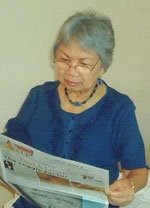 In Canada she worked at IDRC (International Development Research Centre) in Ottawa which sent her to IDRC Regional Office for Africa based in Kenya as project coordinator (1977-1979) to help train African graduate students in social science research. She became fluent in Swahili. From 1984 to 1990, she was bureau manager for the New York Times in Beijing where she became fluent in Mandarin Chinese. Back in Canada in 1991, she was researcher and manager for administration and programs at the Institute of Asian Research, University of British Columbia (1991-2000). As Primary Researcher and Coordinator of the Institute’s Asian Immigration project, she organized an International conference on Asian Immigration and Racism in Canada in 1998. It resulted in a book, published as Asian Immigration and Racism in Canada which she edited with Professors Aprodicio Laquian and Terry McGee. She also edited a coffee table book about the first environmentally sensitive building on the UBC campus – the C.K Choi Building for the Institute of Asian Research – published by UBC in 1995.
In Canada she worked at IDRC (International Development Research Centre) in Ottawa which sent her to IDRC Regional Office for Africa based in Kenya as project coordinator (1977-1979) to help train African graduate students in social science research. She became fluent in Swahili. From 1984 to 1990, she was bureau manager for the New York Times in Beijing where she became fluent in Mandarin Chinese. Back in Canada in 1991, she was researcher and manager for administration and programs at the Institute of Asian Research, University of British Columbia (1991-2000). As Primary Researcher and Coordinator of the Institute’s Asian Immigration project, she organized an International conference on Asian Immigration and Racism in Canada in 1998. It resulted in a book, published as Asian Immigration and Racism in Canada which she edited with Professors Aprodicio Laquian and Terry McGee. She also edited a coffee table book about the first environmentally sensitive building on the UBC campus – the C.K Choi Building for the Institute of Asian Research – published by UBC in 1995.
In addition she co-authored with her husband Aprodicio Laquian Seeking a Better life Abroad (A Study of Filipinos in Canada 1957-2007) published by Anvil Publishing, Inc. in Manila in 2008. She was the first and only researcher who has conducted a nationwide questionnaire-plus-personal-interview survey of Filipinos in Canada by driving cross-country from Ottawa to Vancouver in 1972 interviewing Filipinos for her University of the Philippines Master’s thesis, Administrative and Policy Aspects of Filipino Immigration to Canada. It was published by the United Council of Filipino Associations in Canada (UCFAC) in Ottawa in 1973.
After retiring from UBC in 2000, she volunteered with the Vancouver Committee for Domestic Workers and Caregivers Rights (CDWCR) teaching English to caregivers and domestic workers, writing funding proposals for their activities and organizing the “Singing Nannies” as a CDWCR fundraiser with herself as their guitarist.
In 2016 she helped set up the Maple Bamboo Network Society, a non-profit organization that publishes Canadian Filipino.Net, a nationwide twice-a-month online newsmagazine for and about Filipinos in Canada. She has been the editor of this publication from its start to date. CFNet is run by an all-Filipino volunteer staff using email. It is now on its 5th year of publication and received more than 4 million hits from Filipinos all over the world last year.
Dr. Eileen de Villa, a Boston-born and Toronto-raised Canadian Filipino, is at the forefront of Toronto’s fight against Covid-19. As chief Medical Health Officer for the City of Toronto, a post she has held since March 2017, she heads the biggest local public health agency in Canada. The Toronto Public Health Agency provides public health programs and services to 2.9 million residents.
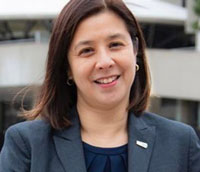 In March 2019 she led a number of municipal groups, health coalitions and advocacy organizations in protesting Ontario Premier Doug Ford’s cuts to provincial public health funding. In a statement to reporters in April, she warned that the cuts will have “significant negative impacts on the health of Toronto residents.” The City of Toronto estimates a loss of provincial funding of about $1 billion over the next 10 years, thereby losing services like free injection sites.
In March 2019 she led a number of municipal groups, health coalitions and advocacy organizations in protesting Ontario Premier Doug Ford’s cuts to provincial public health funding. In a statement to reporters in April, she warned that the cuts will have “significant negative impacts on the health of Toronto residents.” The City of Toronto estimates a loss of provincial funding of about $1 billion over the next 10 years, thereby losing services like free injection sites.
De Villa may have inherited her “champion of the people” genes from her parents, cardiologist Dr. Maria Antonina de Villa and the late Dr. Guillermo de Villa, an obstetrician/gynecologist. She was born in Boston where her parents did their residencies. In 1972, the family returned to the Philippines but political unrest during the Marcos regime soon made them immigrate to Canada.
Hesitating at first to follow in her parents’ footsteps, de Villa finished a science degree with majors in psychology and women’s health at McGill University. An internship with the United Nations supporting developing countries led her to become interested in “community health” as it was called at that time. It was then that she realized she could help even more within public health if she became a doctor. She went on to complete her degrees of doctor of medicine and master’s of health sciences from the University of Toronto and a master of business administration from the Schulich School of Business.
After serving as Peel Region’s medical officer of health, de Villa was appointed to the TPH top position in 2017. She quickly came to realize that the city faces a formidable enemy: the opioid crisis. Though very controversial, de Villa advocates for the decriminalization of all drugs for personal use. She released a report on the issue last year, adding that “Our belief, based on the evidence, is that the criminalization of people who take drugs is actually contributing to this opioid overdose emergency…because it forces people into unsafe drug practices and presents a barrier to those who might be seeking help.”
Ma-Anne Dionisio – After taking the Toronto Broadway by storm and getting nods from the Dora Mavor Moore Award for her role as Kim in the Toronto production of Miss Saigon, she became the second Asian to play Eponine, after Filipino singer/actress Lea Salonga, in the international and U.S. productions of Les Miserables. 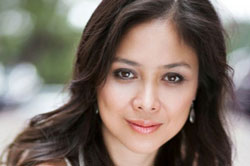
Before moving to Canada with her parents and siblings in 1989 and settling in Winnipeg, Dionisio started dabbling in musical performance by joining singing contests on television back in the Philippines when she was 14 years old. In Canada she indulged her love of music by joining the church choir at St. Edward’s Parish in Winnipeg, Manitoba. Dionisio started her professional singing career after winning the lead role in Experience Canada: Spirit of a Nation, a musical tour that celebrated Canada’s 125th anniversary. Her love for performance art didn’t stop at acting and singing; she is also one of the founding artists of Theatre 20, a musical theatre company formed by Toronto artists in 2009.
Dionisio has performed as Maria in West Side Story at Ontario’s Stratford Festival and appeared on Broadway as Little Girl in the 2002 revival of Flower Drum Song. In February 2016, she was cast in the Broadway musical Closer than Ever that was staged at the Gateway Theatre in Richmond, B.C. She also starred in The Secret Garden directed by Theatre Calgary’s artistic director Stafford Arima. The musical was Dionisio’s debut with Theatre Calgary.
Currently, the Toronto-based singer and actress keeps busy with film and TV. She played the role of Patricia in The Waiting Room, a Canadian drama film released in 2015 and has a recurring role in Schitt’s Creek, a TV series comedy.
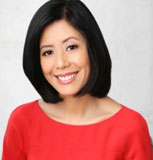 Michelle Elliot was only 12 when her family moved to Canada from Manila. It was at CBC that Eliot started her career, first as an intern 18 years ago after graduating from B.C. Institute of Technology’s Broadcast Journalism diploma program. Eliot worked as associate producer, reporter and guest host on local and national CBC programs like The Early Edition, On the Coast and The 180.
Michelle Elliot was only 12 when her family moved to Canada from Manila. It was at CBC that Eliot started her career, first as an intern 18 years ago after graduating from B.C. Institute of Technology’s Broadcast Journalism diploma program. Eliot worked as associate producer, reporter and guest host on local and national CBC programs like The Early Edition, On the Coast and The 180.
She now hosts BC Today, a daily noon hour call-in show at CBC. It airs Monday to Friday at 12 noon. The province-wide noon hour radio show BC Today engages callers to share their opinions of current issues as well as provide an open platform for virtually any topic that callers may wish to discuss. Her work has been recognized by the Radio Television Digital News Association (RTDNA Canada) and the Jack Webster Foundation, garnering awards for stories she either produced or wrote. She has worked as a journalist at CBC for over 20 years.
MLA Mable Elmore, who holds the record of being the first politician of Filipino heritage to get elected as B.C. Member of Legislative Assembly, cruised to victory on election night in 2020 for a fourth term as MLA representative of Vancouver-Kensington in the October 24 provincial election.
She was first elected MLA for Vancouver-Kensington in 2009, when she made history by becoming the first MLA of Filipino heritage. Mable was re-elected in 2013 and 2017. She serves as Parliamentary Secretary for Poverty Reduction for NDP.
Elmore is passionate about building community engagement and connecting people around issues that matter to them. She is dedicated to doing whatever she can to make the lives of people in her community – and across B.C. – better and has worked tirelessly on a wide range of immigrant, social justice, and workers' rights issues.
Elmore wouldn’t offer any hints on her possible Cabinet position. “If I’m called to whatever capacity, I’m willing to serve.”
If given a choice though, she’d like to work in areas she has been involved in, namely, immigration, temporary foreign workers, multiculturalism, and finance.
“My heart is really to be of service to the community and to work on behalf of the community. My view is that government should work for the people,” she said.
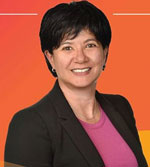 A known advocate of immigrant rights, Elmore considers affordability as the top issue that needs to be addressed. Working with immigrant communities, Elmore said their individual stories stuck with her, citing a meeting with a 22-year-old newcomer from the Philippines who can barely afford to pay $550 per course to upgrade her skills. MLA Elmore said another important issue is to provide more affordable post-secondary education.
A known advocate of immigrant rights, Elmore considers affordability as the top issue that needs to be addressed. Working with immigrant communities, Elmore said their individual stories stuck with her, citing a meeting with a 22-year-old newcomer from the Philippines who can barely afford to pay $550 per course to upgrade her skills. MLA Elmore said another important issue is to provide more affordable post-secondary education.
She lamented the fact that British Columbia has the highest student debt. “The government has higher collection from student debt than from corporate taxes.” She said there is “chronic underfunding” of schools while the dropout rate for immigrant youth is critical.”
Meanwhile, Elmore noted that Filipinos come to Canada with higher levels of educational attainment than others but end up receiving the lowest wages. “We have to make sure our foreign credentials are recognized in the province.”
A second-generation Canadian Filipino, Elmore is only one among very few elected officials in Canada who are of Filipino heritage. A staunch advocate for caregiver and immigrants’ rights, social justice, and women, gay, lesbian and transgender issues, Elmore is likewise passionate about concerns regarding affordable housing and childcare, accessible education, and the need for mental-health support for youth and children.
Prior to her election as MLA, Mable worked as a transit operator for 10 years for the Coast Mountain Bus Company and became an advocate for workers’ rights. Over that time she played an active role within her union – Canadian Auto Workers Local 111 – and led successful campaigns as a transit advocate in Vancouver’s Canadian Filipino community.
Elmore’s mother immigrated to Canada from the Philippines as a nurse in 1965, and met Elmore’s father, a manager at a pulp and paper mill in Prince Rupert, B.C., and of Irish descent. Two years later, Elmore was born in Langley, but spent her youth in Winnipeg, Manitoba. After high school, she studied Physical Education at the University of British Columbia. Elmore has resided in Vancouver for over 20 years.
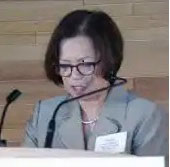 Delia D. Laglagaron was the deputy commissioner and deputy administrative officer of the Greater Vancouver Regional District (GVRD) now called Metro Vancouver. GVRD was the primary planning body for the lower mainland of B.C.
Delia D. Laglagaron was the deputy commissioner and deputy administrative officer of the Greater Vancouver Regional District (GVRD) now called Metro Vancouver. GVRD was the primary planning body for the lower mainland of B.C.
She has an architecture degree from the University of Santo Tomas in Manila (and topped the national architectural board in 1975). She also has a master’s degree in urban and regional planning from the University of the Philippines. She immigrated to Canada in 1976. In 1994-1995, she went on study leave from GVRD to get a master’s in public administration from the Kennedy School of Government, Harvard University in the U.S. On her return to GVRD she was promoted in rapid succession leading to the second highest executive position at GVRD from which she retired in 2015.
Professor Aprodicio A. Laquian has a BA in Public Administration, cum laude, from the University of the Philippine in 1959 and Ph.D. in political science and urban studies in 1965 from M.I.T. in the U.S.
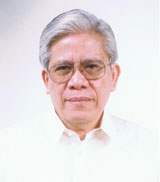 Due to political turmoil in the Philippines, he immigrated his family to Canada in 1969 and worked as Director of Research at the International Association of Metropolitan Research in Toronto (1969-70), as Associate Director of Social Sciences at the International Development and Research (IDRC) in Ottawa (1971- 1977) and as Project Director at IDRC Regional Office for Africa based in Kenya ( (1977-1979).
Due to political turmoil in the Philippines, he immigrated his family to Canada in 1969 and worked as Director of Research at the International Association of Metropolitan Research in Toronto (1969-70), as Associate Director of Social Sciences at the International Development and Research (IDRC) in Ottawa (1971- 1977) and as Project Director at IDRC Regional Office for Africa based in Kenya ( (1977-1979).
In 1981 he joined the United Nations Population Fund (UNFP) as country director for the South Pacific (1982-1984) and as country director for China, Outer Mongolia and North Korea (1984-1990). After 6 ½ years in China, he was credited by China’s Family Planning Commission for averting about 24 million births by funding modern contraceptive factories with his $14 million annual UNPF budget and improving family planning programs to minimize abortions during China’s one-child family campaign. He returned to UNPF-HQ in New York as head of its Evaluation Division.
His academic career included: professor at the University of the Philippines (1965-1968), Visiting Professor at the University of Hawaii (1969-1970), University of Nairobi (1977-1979) and De la Salle University in Manila (1979-1981), honorary professor at Peking University (1984-1990), professor and acting director of M.I.T. Special Program in Urban and Regional Studies (2001- 2002. He is now a Professor Emeritus of community and regional planning at UBC after retiring in 2000 as a tenured professor and director of the UBC Centre for Human Settlements (1991-2000).
After UBC Laquian served briefly as Chief of Staff to Philippine President Joseph Estrada in 2000, a year as resident scholar at the Woodrow Wilson Center for International Scholars in Washington, DC in 2001, as Asian Development Bank consultant and as coordinator for a study of basic urban services in 700 cities and towns in 16 Asia Pacific countries funded by United Cities and Local Governments (UCLG) in Barcelona, Spain and the UN HABITAT in Nairobi.
He has international recognition and reputation as one of the world’s top researcher-practitioners in the integrated fields of comprehensive city and regional planning, local government and reforms. He has authored 20 books and numerous articles on urban planning, governance and delivery of urban infrastructure and services to the poor. He is president and CEO of Maple Bamboo Network Society, the non-profit publisher of CFNet, the online nationwide news magazine for Canadian Filipinos.
The Honourable Dr. Rey D. Pagtakhan, P.C., O.M., LL.D., Sc.D., M.D., M.Sc., made history as the only MP of Filipino heritage in Canadian history when he was elected to the House of Commons – the highest elective body in Canada– on November 21, 1988, almost 21 years after he immigrated to Canada on January 6, 1968. He remains to date the only MP of Filipino heritage in Canadian history.
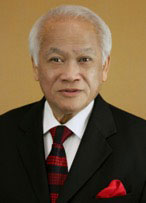 Up until election time, he was a Professor of Pediatrics and Child Health at the University of Manitoba Faculty of Medicine (UMFM) and Director of the Manitoba Cystic Fibrosis Center at the Winnipeg Children’s Hospital (WCH); had written several book chapters and articles for textbooks and journals; and had widely lectured in Canada and abroad.
Up until election time, he was a Professor of Pediatrics and Child Health at the University of Manitoba Faculty of Medicine (UMFM) and Director of the Manitoba Cystic Fibrosis Center at the Winnipeg Children’s Hospital (WCH); had written several book chapters and articles for textbooks and journals; and had widely lectured in Canada and abroad.
A 1961 graduate of the University of the Philippines (UP), Dr. Pagtakhan did his postgraduate training initially at the UP-Philippine General Hospital as a Research Assistant (1961-1963); his first research paper won the 1962 Manila Medical Society First Prize Award. Then he went to St. Louis Children’s Hospital of Washington University School of Medicine as a Resident and Fellow in Cardiology (1963-1967) where he held a two-year Missouri and St. Louis Heart Associations Joint Research Fellowship Award. Later, he came to the WCH and UM Faculty of Graduate Studies and Research as Fellow in Respirology and postgrad student in perinatal physiology on a fellowship grant (1968-1971).
Four months after Dr. Pagtakhan took his Oath of Office, Canadian historian Charlotte Gray wrote for the Canadian Medical Association Journal “Pagtakhan is the sole MD in the Liberal ranks…also the first Canadian MP to have been born in the Philippines. His history is that of every successful Canadian immigrant: a combination of hard work and community values, leavened with humour and enthusiasm for his adopted country.”
Reflected award-winning writer/broadcaster Lesley Hughes in her 2005 book, We Chose Canada: Eleven Profiles from Manitoba’s Mosaic: “There is no shortage of tangible results to which Rey Pagtakhan can point as his legacy, but the intangible effects of his life in this country may be even more crucial to its development. Of the man who was educated as a boy by the generosity of his community, …then Prime Minister Jean Chretien may have made the best observation. ‘Rey,’ he said, ‘represents what this country is all about.’”[He takes pride in having persuaded two Ministers of Immigration to permit two Filipina deportees back to Canada and obtaining cabinet support to compensate aboriginal veterans and former prisoners of war late in filing their claims for benefits.]
Presently, he volunteers on the Advisory Council of Immigration Partnership Winnipeg and the Board of the St. Paul’s College Foundation at the University of Manitoba. He contributes regularly to Pilipino Express and Canadian Filipino Net with his bi-monthly column, Medisina at Politika, devoted almost exclusively to COVID-19 pandemic since February 2020.
A biographee in Canadian Who’s Who and former Parliamentary Secretary to Prime Minister Jean Chretien, Canadian Filipino Dr. Rey Pagtakhan is the recipient of many honors, medals and awards, including life-long membership in Our Privy Council for Canada (since 2001), Queen Elizabeth II Silver (1977), Golden (2002), and Diamond (2012) Jubilee Medals, Philippine JAYCEES Most Outstanding Filipino Overseas for Medicine (1981), Canadian Society for Clinical Investigation Traveling Fellowship Award (held while on sabbatical leave as Visiting Professor of Pediatrics at the University of Arizona College of Medicine, 1982-1983),UP Medical Alumni Society Most Distinguished Alumnus (1992), Philippine Presidential Citation (1997), honorary Doctor of Laws (2002) and Doctor of Science (2010), UP College of Medicine Centennial Award for Community Service (2005), and the Order of Manitoba (2017).
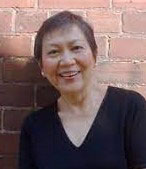 Fely Villasin graduated with a BS Foreign Service degree from the University of the Philippines at age 15 because she was accelerated in elementary and high school. She received a four-year scholarship to study at the Sorbonne in Paris and on her return to Manila worked at the French Embassy in the Philippines before she immigrated to Canada in 1974.
Fely Villasin graduated with a BS Foreign Service degree from the University of the Philippines at age 15 because she was accelerated in elementary and high school. She received a four-year scholarship to study at the Sorbonne in Paris and on her return to Manila worked at the French Embassy in the Philippines before she immigrated to Canada in 1974.
She was one of the early Filipino activists in Toronto advocating for social justice which she started in the Philippines where she was a vocal critic of the Marcos dictatorship. She and her husband Ruben Cusipag had to leave the Philippines to avoid persecution by Marcos supporters. They continued their activism in Toronto against Marcos until the popular uprising called EDSA people revolution with the support of the United States ended the Marcos dictatorship in 1986 and Cory Aquino became president through the strength of People Power.
In Toronto she set up INTERCEDE in 1979 to champion the rights of caregivers and domestic workers. She organized other Filipino activists to fight for landed immigrant status for caregivers and domestic workers, a fight still to be won. They advocated full coverage for domestic workers in the Ontario Employment Standards Act and in the Ontario Human Rights Code, the granting of full coverage for domestic workers under the Workers Compensation Act and upholding of the right of domestic workers to organize under Ontario’s Labour Relations Act. As founder and coordinator of INTERCEDE, she devoted herself to the rights of caregivers domestic workers in Canada, mostly Filipinos, until she succumbed to cancer in 2006 at age 65.
She was also one of the founders of the Kababayan Community Centre, the Kapisanan Philippine Centre and in 1982 the Carlos Bolosan Theatre, the only long-standing professional Filipino Canadian theatre company in Toronto for which she wrote plays and acted for many years as her pastime.



